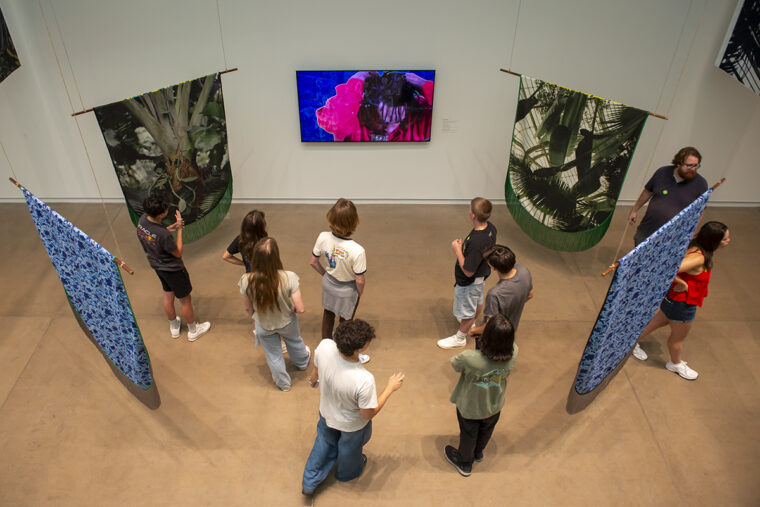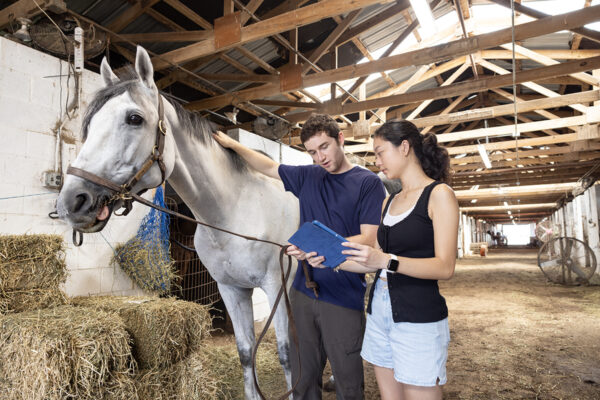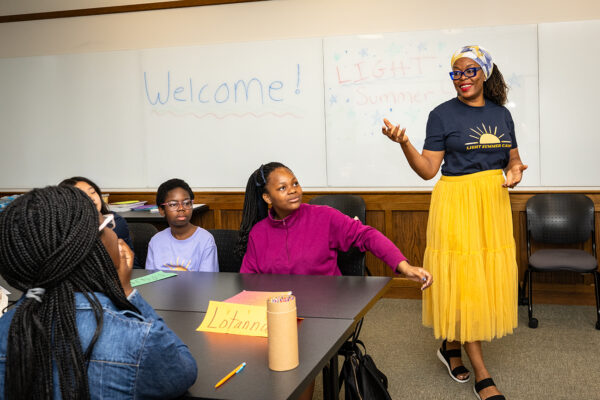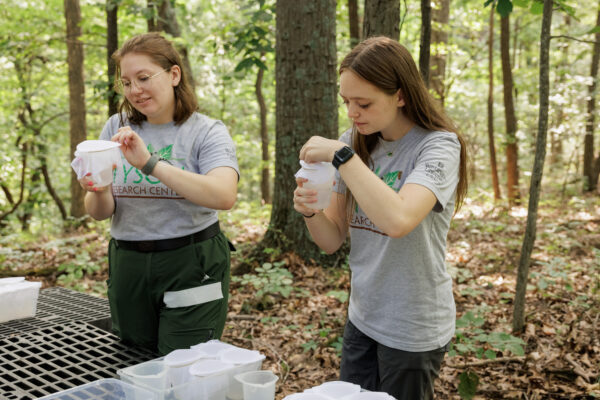It is the rare high school that offers philosophy. And that’s too bad, said WashU’s Allan Hazlett, a professor of philosophy in Arts & Sciences, because teenagers are natural philosophers.
“It’s the adults who are dogmatic and fixed,” Hazlett said. “Young people are more creative, more open minded and more willing to have their assumptions destabilized. That’s the ideal for a philosophy classroom.”
Two years ago, Hazlett introduced the Summer Philosophy Academy, a free one-week program for high school students curious about philosophy — no prior knowledge of Aristotle or Kant required. Through lectures, discussions and field trips with WashU philosophy faculty and students, participants explore urgent ethical and philosophical questions about political polarization, artificial intelligence (AI), social media and other contemporary topics.
“There is no homework, no credit and no grades,” Hazlett said. “Just show up and be ready to talk.”
The academy is part of Washington University in St. Louis’ Civil Society Initiative, which strives to promote responsible democratic citizenship. Funded by the Frick Initiative, it also includes classes, guest speakers and public events.
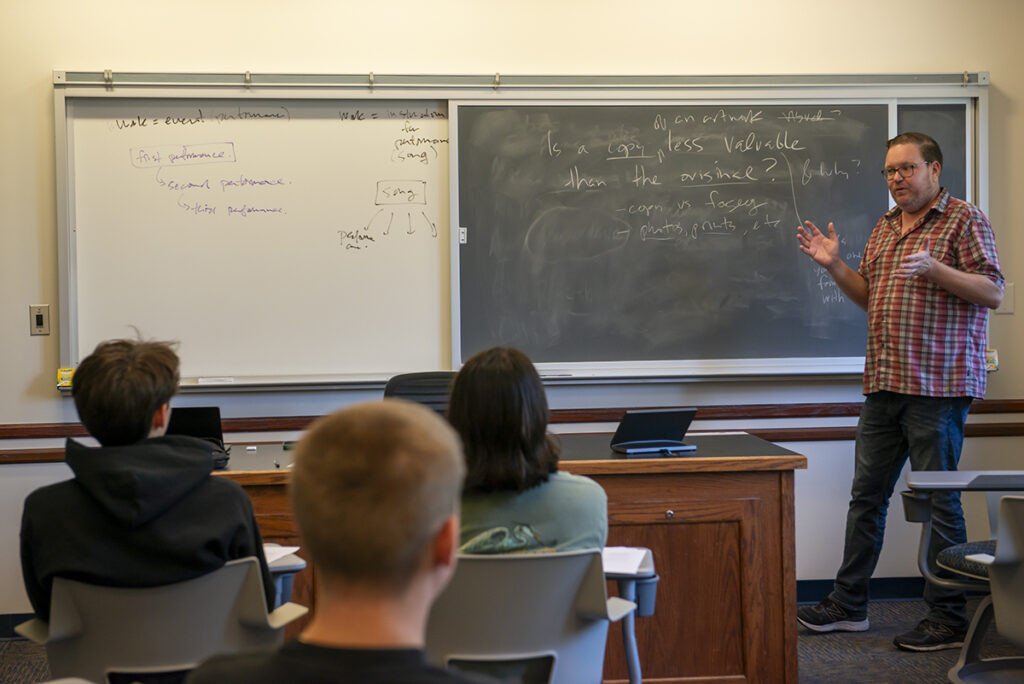
On this day, the students debate whether AI-generated images can ever be art. To get students thinking, instructor Parker Robinson projects a series of images and challenges the students to discern the AI images from the human-made art. The task is tougher than it sounds. The students mistake an AI image of a Parisian street scene for an Impressionist masterpiece and are convinced that a 16th-century painting of a wounded Christ was made by AI.
“But it’s so bad. The muscle structure is weird,” one student objects.
So if AI art looks real and real art looks fake, what makes art, art anyway? asked Robinson, who graduated in May with degrees in philosophy and in physics from Arts & Sciences.
“What we’ve been doing is analyzing the aesthetic value of these images. Is what we see pleasurable to our eyes? Are we having an aesthetic experience?” Robinson said. “But is there more to art than just the experience you have when you look at it? What about intent? Context? The artistic process?”
Later in the day, Robinson will take the students to the Kemper Art Museum and share what great thinkers such as Aristotle and Robin George Collingwood had to say about art. Hazlett also will lead a discussion about the purpose of art. What, he asks students, gives art its value? Is it scarcity? Its historical connection to someone or some practice? The effort expended to create the work?
Angie Collins, a rising senior at University City High School, weighs what she has learned and decides that AI art is … well, she isn’t sure.
“My stance coming in was that anything that did not already exist in nature could be art, but my ideas have been challenged,” Collins said. “I’m still thinking about it.”
Collins is a member of the University City High School philosophy club, which WashU undergrads helped launch four years ago. This is her second year at the Summer Philosophy Academy. She likes the focus on issues that matter to her and her peers.
“Misinformation, social media, AI — these technological questions are not abstract ideas. They are incredibly relevant and issues that all of us have personal experience with,” Collins said.
Robinson said the academy’s curriculum is intentionally both eye-opening and accessible. Last year, students went to the Saint Louis Zoo for a discussion about animal intelligence; this year, they visited the Museum of Illusion to explore the metaphysics of perceptions. Students also have discussed the political philosophy of removing monuments, the ethical considerations of self-driving cars and how to deploy logic in civil discourse.
“We are all philosophers,” Robinson said. “Philosophy doesn’t need to be this academic, detached study. It’s something we are doing all of the time.”
